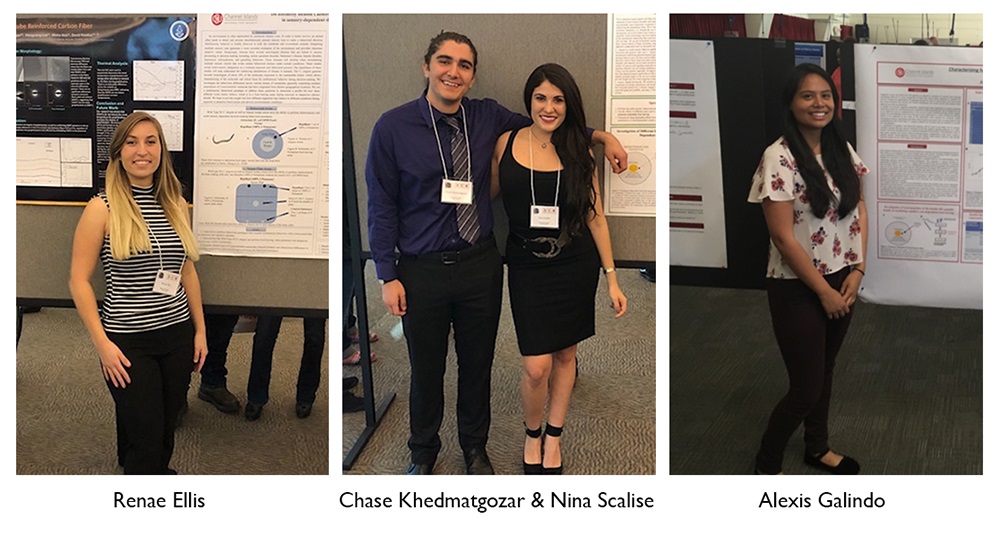 March 25, 2019 — Their research into worms with brains and nervous systems similar to ours has earned four CSU Channel Islands (CSUCI) students a world stage.
March 25, 2019 — Their research into worms with brains and nervous systems similar to ours has earned four CSU Channel Islands (CSUCI) students a world stage.
Biology majors Renae Ellis, Chase Khedmatgozar, Nina Scalise and Alexis Galindo have been accepted into the 2nd Annual World Council on Undergraduate Research (World CUR 2019) this spring in Germany.
The four undergraduate researchers will present their worm behavior research at the council on May 23-25 at the University of Oldenburg, Germany.
“I’ve never been to Europe,” Galindo said. “I’ve always wanted to go to Germany.”
The students’ research involves the Caenorhabditis elegans or C. elegans worm, which is about a millimeter in length and possesses a brain and genome (genetic instructions) that operate in ways that are similar to a human’s.
“The student researchers are looking at how worms make decisions,” said their faculty advisor, Assistant Professor of Biology Gareth Harris, Ph.D. “They’re trying to determine how the worm’s nervous system affects its decision-making while adding different human drugs like alcohol, caffeine and Prozac.”
The students are testing this by deleting one gene at a time in each group of worms to see if the worms (now “mutant” worms) act differently when that gene is gone.
Harris brought his worm research to CSUCI from Harvard University, where he worked in the Center for Brain Science for seven years as a post-doctoral fellow under Professor of Organismic and Evolutionary Biology Yun Zhang, Ph.D.
Here’s how the experiment works: Basically, the microscopic worms get a petri dish picnic of their favorite food, E.coli bacteria.
“They love food, and they love to eat,” Ellis said. “Then we introduce a drop of a substance next to the food that is very toxic to them called nonanone. It will kill them if they stay on the food for too long, so they have to make a decision whether to leave.”
The students record how slowly or quickly the worms crawl away from the poison and leave their picnic. Overall, based on whether the worms are on caffeine, alcohol, Prozac, Lithium or some other substance. Or whether or not specific genes of the worm’s nervous system are missing. Finding this out can give clues as to how these substances and/or genes affect human decision-making on a cellular level.
Ellis is taking the research in another direction by studying how environment influences the worms’ decision-making. She is using C. elegans worms from different parts of the globe to compare how their native environment affects how long it takes the worms to decide between food and what amounts to worm poison.
At least one of the students learned research skills during one of CSUCI’s Student Undergraduate Research Fellows (SURF) sessions, in which freshmen conduct research in a variety of disciplines in order to learn the research process.
The World Council chooses 400 students out of thousands who apply from around the world based on whether the research addresses some sort of global problem.
In the students’ acceptance letter, the World CUR 2019 representatives wrote that the CSUCI project “demonstrates a unique contribution to your field of study.”
